Undercover and InfoWar Operations in Yorkshire (4)
by TIM HICKS
~~~~~
This is the fourth article on the subject of undercover and information warfare operations in Yorkshire.
The first covered the influence of the military on armed and undercover police operations and can be read here:
The second covered the influence of the military on police information warfare operations and can be read here:
The third covered information warfare operations by Local Government Organisations and can be read here:
This article covers information warfare operations by public bodies, in this case North Yorkshire Police (NYP) and the Office of Police & Crime Commissioner for North Yorkshire (OPCCNY).
Background
For reasons of consistency, some repetition of the definition of terms from article 2 is necessary. Information Warfare/Operations was until recently a military term and it is defined below:
- Information Warfare [2] is a United States military concept involving the collection [2] of tactical information, assurance [2] that one’s own information is valid, spreading of propaganda [2] or disinformation [2] to demoralize [2] or manipulate [2] the enemy and the public, undermining the quality of opposing force information and denial of information-collection opportunities to opposing forces. Information warfare is closely linked to psychological warfare[2]. The United States military focus tends to favor technology, and hence tends to extend into the realms of electronic warfare[2], cyberwarfare[2], information assurance and computer network operations[2], attack and defense. Most of the rest of the world use the much broader term of Information Operations[2] which has combined the making use of technology, as well as focusing on the more human-related aspects of information use.
- Media Operations[8]. Information Operations and Media Manipulation are often incorporated into Media Operations. The British Army now has a Media Operations Group which is seen as critical to the successful outcome of any mission on the modern battlefield. It emphasises the importance of briefing journalists “on what is happening with the military campaign ….. and are briefed to contextualise events” (i.e. influencing the media by putting the military’s view of events to journalists, so it will be provided to the public by the media. Thereby influencing them positively). (My emphasis in bold). Perhaps the most successful example of British military media operations to date was the manipulation of the media during the 1982 Falklands conflict[1].
- Media manipulation [2] is a series of related techniques in which an image or argument that favors their particular interest of the organisation is promulgated. Media manipulation tactics may include the use of outright deception and often involves the suppression of information [2] or points of view, by crowding them out, by inducing other people or groups of people to stop listening to certain arguments, or by simply diverting attention elsewhere. In military terms it can be utilised as part of propaganda or psychological warfare.
- Black Operations [2] are covert operations [2] by a government, a government agency, or a military organization. This can include activities by private companies or groups. Key features of black operations are that they are secret and not attributable to the organization carrying it out. The main difference between a black operation and one that is merely secret is that a black operation involves a significant degree of deception, to conceal who is behind it or to make it appear that some other entity is responsible.
This has developed into military media operations. Information operations and media operations are not passive concepts. They are proactive and aggressive. They can include information suppression, media manipulation, media suppression, psychological operations aimed at disaffecting enemy morale (the Home Office de-radicalisation [4] program is an example of demoralising potential terrorists to dissuade them from participating in terrorism) disinformation, legal action, detention, hacking, virus attacks and direct action. The airstrikes in Afghanistan that killed the IS Head of Media and destroyed an internet control centre, and a radio station, are examples of media suppression by direct action. BBC report here [4] and report here [4]).
Throughout the articles, references to the above Information Warfare Operations terms are in brackets and highlighted in Bold. Sources are accredited in brackets as follows:
[1] Guardian article.
[2] Wikipedia article.
[3] Daily Mail article.
[4] BBC article or broadcast.
[5] Forces TV broadcast.
[6] Daily Telegraph article.
[7] Northern Echo article.
[8] Ministry of Defence.
[9] Cleveland Police.
The Ethical Aspect of Public Bodies conducting Information Warfare Operations
Most private sector organisations of any size have Corporate Communications, Media Departments, Press Offices and/or Public Relations Departments to liaise with the press, provide information on the organisation and project a positive image, although they are not under any legal obligation to do so. With public bodies it is a very different situation. In the 1993 case of Derbyshire County Council v Times Newspapers, the Law Lords ruled that it was vital that the public were free to criticise public bodies:
“It is of the highest public importance that a democratically elected governmental body, or indeed any governmental body, should be open to uninhibited public criticism.”
Public bodies are under an obligation to act openly, to act for the public benefit and to submit to scrutiny by journalists and the public alike. The Freedom of Information Act entitles everyone to official information within certain specified parameters. To facilitate this, most public sector organisations additionally have a Freedom of Information Department, to respond to FOI requests. These Departments meet the needs of both the press and the public. However, some public sector organisations maintain very different approaches to responding to enquiries from the public and those it receives from the press. So why is this?
To hold public bodies to account, journalists and members of the public need to have access to information from those bodies, both for:
- Informing the public generally about the organisation and the benefits it provides, which is in accordance with the objectives of most organisations and its management.
and
- Holding public bodies to account in cases of inefficiency, incompetence and/or misconduct. Which is in accordance with the public interest, but completely contrary to the self-interest of some officers and all senior managers/officers of a public body.
Journalists use interaction with Press Offices, Media Departments, Corporate Communications Teams and the FOI Act to obtain information for the lawful purpose of informing the public and holding public bodies to account. This is entirely appropriate and a constitutional safeguard that all public bodies have a duty to comply with in the public interest. Without open access to this information, journalists can’t exercise effective scrutiny over public bodies.
This leads into a number of major practical, ethical and legal issues concerning relations between public bodies and the media:
- Principle: Public bodies are under an obligation to act openly and submit to public scrutiny.
- Practical: The police in particular are a public body that has to work and co-operate with the media, to obtain information in support of investigations and to keep them informed generally about policing. So pursuing a policy of restriction and retaliation is contrary to the primary duty of the police to investigate crime and ensure public safety.
- Ethical: Police forces are there to uphold the law impartially without fear or favour, not to break it. There is therefore an overwhelming requirement for police forces, police officers and civilian police workers to behave in a civil manner and set an appropriate example of subordination to the law, whether it is convenient, or not.
- Legal: Ignoring the provisions of the FOI Act is against the law, as is pursuing an aggressive policy towards journalists.
It is my belief that these basic concepts have bye passed some police forces, which do not apply the law impartially to themselves, but nevertheless enforce it on you and I. When faced with the threat of exposure of a scandal, or criticism in the press, some public bodies will go on the offensive to restrict the media’s ability to expose what is going on. The recent revelations of harassment of journalists and a whistleblowing police officer by Cleveland Police [7] to prevent embarrassing disclosures from within the force are an example of this. (This is to be covered in greater depth in a forthcoming article). Chief Constable Iain Spittal [9] of Cleveland Police formerly served in North Yorkshire Police, rising to Assistant Chief Constable before his transfer to Cleveland Police in June 2013.

Chief Constable Iain Spittal of Cleveland Police
Those public bodies and the individual employees that indulge in this type of Information Warfare Operation (information suppression, media manipulation, media suppression) are undermining everyone’s right to have:
- A free and effective press.
- Access to information the public is entitled to know.
- Public bodies that are properly scrutinised by a free press.
Public bodies and the individual employees of public bodies that indulge in these tactics are breaking the law and in my view acting corruptly.
Withholding Information as a Form of Information Warfare Operation by NYP and the PCCNY
Police Officers are powerful authority figures, routinely used to telling other people what to do and usually getting their own way, because they are backed up by police powers. Because the UK has an ineffective police complaints system, the police in the UK are not properly accountable and have traditionally been resistant to being held to account, or facing up to failings, either publicly or privately. A classic example in North Yorkshire was the Peter Jaconelli scandal. Chief Police Officers did everything they could to ignore the evidence until it was exposed by the North Yorks Enquirer Team and the BBC.
The NYE has run a number of exposes, that were highly embarrassing for NYP, the former North Yorkshire Policing Authority and the Police and Crime Commissioner for North Yorkshire (PCCNY):
- In 2012 we revealed exclusively that the Chief Constable had received enormous expense allowances without having to account or pay tax on them. The response from NYP was to demand that I take down the article. (Information suppression for the purpose of media suppression and media manipulation), thereby preventing media scrutiny and criticism.
- When NYP exempted itself from the IPCC and HMIC Jimmy Savile investigations by claiming that Jimmy Savile did not have any connections to North Yorkshire. (Disinformation for the purpose of media suppression) and suppressing lawful scrutiny. The NYE contacted the IPCC and forced it to include NYP in the investigation.
- When the NYP investigation into Jimmy Savile and Peter Jaconelli by Assistant Chief Constable Sue Cross repeated the original finding that NYP had known nothing about Jimmy Savile and Peter Jaconelli. (Disinformation for the purpose of media suppression) and suppressing lawful scrutiny. We ran an expose that destroyed the credibility of her investigation. When the IPCC accepted the ACC Cross report without question, we carried on campaigning for a full investigation. Eventually a BBC documentary investigated our allegations and upheld them, (BBC investigation here [4]). North Yorkshire Police would not even appear on the program. (Information suppression for the purpose of media suppression), thereby preventing media scrutiny and criticism. Working with the BBC, we forced NYP to re-open the investigation.
- The new NYP investigation into Jaconelli conceded that ACC Cross’s investigation had failed to detect a major paedophile vice ring operating in Scarborough run by Peter Jaconelli. Probably the greatest investigative failure in the history of policing in North Yorkshire and in the history of the IPCC. Forcing a humiliating climb down by force media spokesman Assistant Chief Constable Paul Kennedy, which he undertook with considerable skill. (Diversion of media comment for media manipulation) to prevent/reduce lawful and accurate criticism of North Yorkshire Police. This is covered in greater depth in an article Undercover and Information Warfare Operations in Yorkshire 2.
- Following long coverage of the unit, the North Yorks Enquirer also exposed in detail the implosion of the Protecting Vulnerable Persons Unit, shortly after Detective Superintendent Simon Mason of NYP CID had given it a clean bill of health in a report commissioned by PCCNY Julia Mulligan. (Disinformation for the purpose of media manipulation).
The NYE is still pursuing an investigation into the Jaconelli/Savile paedophile ring, to get to the full truth, which has still not emerged. This has had a wider impact in terms of major issues concerning the relationship between the press and the public. As a generalisation, crime reporting in the traditional print media in Yorkshire has not been very challenging of the police (Rob Waugh of the Yorkshire Post is an exception). With the arrival of citizen journalism in the form of the Real Whitby and NYE internet news magazines, that changed.
Citizen journalists are not dependent on good relations with the police for press conferences and off the record briefings, and are not constrained by the need to cover all the stories and produce a specified number of column inches per week. Citizen journalists can focus on local stories and investigate them in greater depth. Consequently, the NYE team were able to conduct an in depth investigation of the Peter Jaconelli and Jimmy Savile scandal in Scarborough, which otherwise would have been swept under the carpet.
The result of this was that, arguably for the first time in its history, North Yorkshire Police came under effective scrutiny from the media, which revealed the two worst investigative failures in its history and the worst in the history of the IPCC, which otherwise would have remained concealed. I hope our readers will not think me cynical when I speculate that I think it is possible that these revelations by the NYE may have strained relations a bit between dear old NYP and the NYE. I think it may also be possible that as a consequence of the embarrassment caused by this improved scrutiny, NYP and the PCCNY follow a co-ordinated policy of not releasing information to the NYE. (Information suppression for the purpose of media suppression), thereby preventing media scrutiny and criticism. If so, then I think this could be for three reasons:
- Specifically to prevent the full truth coming out about the Cross report and the force’s inexcusable failure to arrest Peter Jaconelli
- Generally to prevent any information they provide to the NYE being used as the basis for any more embarrassing exposes on other issues.
- To indicate their displeasure at the embarrassing revelations we have made generally and retaliate by inhibiting our ability to gather information they deem should be withheld (whether the public has a right to know it or not). Thereby preventing us from reporting on it to the people of North Yorkshire.
From the perspective of NYP and the PCCNY, this policy is smart. It inhibits the NYE’s ability to gather information generally and denies specific information the senior management of NYP or the PCCNY deem should be withheld – thereby preventing any more embarrassing disclosures. In short, it prevents the NYE from reporting on NYP to the people of North Yorkshire and is a form of police censorship of the media. In information Warfare/Operations terms, this is called ‘Information suppression for the purpose of media suppression’. This type of operation is conducted to prevent media scrutiny and any consequent criticism that may arise as a result of it.
Following on from the list of failed Information Warfare Operations above, perhaps a few more recent ongoing examples would illustrate the point:
- In November 2017, I submitted a request for information on the Protecting Vulnerable Persons Unit to NYP and the OPCC. It still has not been responded to. (Information suppression for the purpose of media suppression).
- In February 2017 I submitted a FOI request covering multiple issues including use of police funds and the Peter Jaconelli investigation to NYP and the OPCC. It still has not been responded to. (Information suppression for the purpose of media suppression).
- In March 2017 I submitted a FOI request to NYP asking for NYP policy on use of spit hoods and face masks. It still has not been responded to. (Information suppression for the purpose of media suppression).
- In April 2017 I submitted a FOI request to the OPCC asking for biographical details of the Police and Crime Commissioner’s career and professional qualifications. It still has not been fully responded to. (Information suppression for the purpose of media suppression).
- On the 21st of May 2017 I submitted a FOI request to NYP asking for a statement of force policy on undercover operations. I nearly fell off my seat when I actually got a response, on the 7th of June 2017. Could it be that this was a reversal in NYP policy? The response was that my FOI request was withheld on grounds of national security. The College of Policing has introduced a consultation document suggesting guidelines for undercover policing: http://www.college.police.uk/News/College-news/Pages/undercover-policing-guide.aspx. In my opinion there was no reason why a statement confirming NYP Policy, or confirming that NYP was compliant with the draft college of policing guidelines could not therefore have been issued. (Disinformation to suppress information, for the purpose of media suppression under the cover of protecting national security).
These are all examples of the Police and the Police and the PCCNY routinely pursuing unacceptable Information Warfare Operations in Yorkshire and the surrounding area. Indeed it appears that NYP and the PCCNY only respond to an FOI from the NYE if they can dream up a vaguely credible reason to exempt the information from disclosure.

Police and Crime Commissioner Julia Mulligan: Restricting the flow of information to journalists and the public.
Part of Police & Crime Commissioner Mulligan’s role is to act as a safeguard on the police by holding them to account. I am unaware of any occasion when Police & Crime Commissioner Mulligan has ever opposed North Yorkshire Police. Perhaps someone can explain to me how she can claim to be holding the police to account?
Maybe someone can also explain how restricting the flow of information that may lead to further embarrassing revelations of police misconduct and incompetence is compatible with open policing?
Further, one cannot also help but ask: What is the point of the public paying hundreds of thousands of pounds in salaries and premises costs for maintaining the NYP and OPCCNY Corporate Communications Teams, when both organisations appear to follow a co-ordinated policy of withholding information the public are entitled to know?
For examples of Information Warfare Operations conducted by other (non-police) public bodies in Yorkshire, please see article here: Undercover and Information Warfare Operations in Yorkshire 3
The Corporate Communications Teams of NYP and the OPCC were shown a draft of this article before publication and given the opportunity of commenting on it, but chose not to.


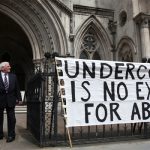

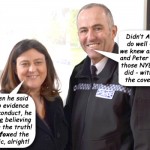

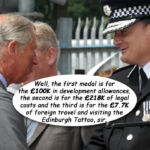

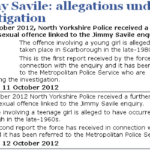
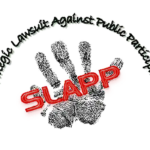
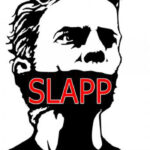
















Comments are closed.